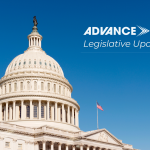As we approach the end of 2023, many of us are thinking about the road ahead for 2024, celebrating with our families and creating resolutions for the new year. While December and January are often an opportunity for personal reflection, 2024 offers an additional opportunity to reflect on the intentions for Career Technical Education (CTE) set out in the Carl D. Perkins Career and Technical Education Act (Perkins V) via the state plan process, and the impact those plans have had on our systems and learners.
 While most states are primarily updating state-determined performance levels (SDLPs) as required every four years by law, others are using this opportunity to make larger, substantive changes or write a new state plan. This post offers some insights on what we are hearing from state CTE leaders so far about their goals for state plan updates, and the spaces and resources Advance CTE is providing to support this process.
While most states are primarily updating state-determined performance levels (SDLPs) as required every four years by law, others are using this opportunity to make larger, substantive changes or write a new state plan. This post offers some insights on what we are hearing from state CTE leaders so far about their goals for state plan updates, and the spaces and resources Advance CTE is providing to support this process.
As the Office of Career Technical and Adult Education of the U.S. Department of Education reminded us with their program memo earlier this fall, Perkins state plans are a powerful strategic lever to align CTE policy and implementation with a state’s broader vision for education and workforce. A strength of Perkins V is the periodic, coordinated opportunity for states to evaluate and refine their targets and strategies in concert with one another. This coordinated cycle allows state leaders to learn from and alongside one another while also designing Perkins state plans that meet the specific needs of their state and learners.
 As a former State CTE Director myself, I regularly considered how well our state plan aligned with and reinforced our strategic priorities of expanding access to CTE, improving the quality of CTE programs of study and continuing to intentionally align the secondary and postsecondary CTE system with the needs of employers. Reviewing the state plan against our progress and goals helped us ensure that the plan served as a progress-centered north star, rather than a reflection of the status quo. We leveraged everything from the performance indicators we chose, to the way we defined those metrics, to our size, scope and quality definitions as levers to continually drive towards serving more learners in high-quality programs that served as launchpads for future success. While the process of reviewing and updating state Perkins plans can be time-consuming, it is time well spent, and framing the opportunity as something state leaders get to do rather than something they have to do helps keep the focus on what matters most – continually improving the CTE experience for learners.
As a former State CTE Director myself, I regularly considered how well our state plan aligned with and reinforced our strategic priorities of expanding access to CTE, improving the quality of CTE programs of study and continuing to intentionally align the secondary and postsecondary CTE system with the needs of employers. Reviewing the state plan against our progress and goals helped us ensure that the plan served as a progress-centered north star, rather than a reflection of the status quo. We leveraged everything from the performance indicators we chose, to the way we defined those metrics, to our size, scope and quality definitions as levers to continually drive towards serving more learners in high-quality programs that served as launchpads for future success. While the process of reviewing and updating state Perkins plans can be time-consuming, it is time well spent, and framing the opportunity as something state leaders get to do rather than something they have to do helps keep the focus on what matters most – continually improving the CTE experience for learners.
As state leaders work through this process in 2024, Advance CTE is here to be a partner not only through spaces for states to learn from each other, but through resources that recenter and challenge state leaders to consider and address challenges facing our systems and learners. The conversations began at Advance CTE’s 2023 Fall Meeting in October with sessions on translating Perkins plan to system-wide culture change and lasting impact, ranging from, accountability to reserve fund usage seeded great cross-state learning opportunities.
To keep these conversations going, this month Advance CTE launched a suite of supports designed to ensure your Perkins state plan serves as a powerful lever to achieve your state vision for career technical education, and more broadly CTE Without Limits. These supports include:
- Monthly Perkins Planning Office Hours,
- Opportunities for one-on-one discussion on Perkins data and State Determined Performance Levels (SDPLs) for members,
- New mini-briefs on strategies to support special populations in CTE, and more.
In our first Perkins Planning Office Hours, we heard great discussions on setting meaningful and achievable SDPLs and the impact of setting all local recipient targets at the state target versus engaging in a process to negotiate targets locally. State leaders also discussed stakeholder engagement and messaging substantive plan changes to impacted audiences to maximize relevant feedback. Visit Advance CTE’s event page to register for future office hours.
Just like many of us set intentions and resolutions at the start of the new year, the Perkins state plan allows us to do just that for our CTE systems, educators and learners. It’s a great opportunity to reflect on where we’ve been and where we’re going and we look forward to continuing these conversations with you in the new year!
Emily Passias, Deputy Executive Director

